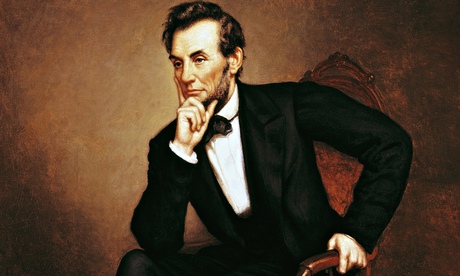
Abraham Lincoln’s father ridiculed and abused him, and the young Lincoln was surrounded by physical cruelty, especially towards animals – part of life on the American frontier. Yet when, as an adolescent, he was asked to kill a snake, he replied: “It enjoys living just the same as we do.” The response shows a commitment to behaving in the way that Lincoln had decided was right, no matter what other people thought.
After a lifetime of reading Lincoln, what I have learned is that you can choose happiness, and that most of our happiness is based on following the better angels of our nature. It astonishes me how often Lincoln was honest when it would have been easier for him not to have been. Running for the Illinois state legislature, he said he stood “for all sharing the privileges of the government, who assist in bearing its burthens” – a Jacksonian bromide that was expected. And then, though no one was asking, he offered the following sentence: “Consequently I go for admitting all whites to the right of suffrage, who pay taxes or bear arms (by no means excluding females).”
When his beloved son died, instead of sinking into grief, Lincoln spent each evening with a friend and member of the cabinet and they would read jokes to each other from a book. To me, this is a supreme example of how one can be unhappy and simultaneously aware that delight remains in the world.
Though Lincoln said “Do I not destroy my enemies by making them my friends?”, and he lived by this, we can see his ordinary humanity in the instances where he failed. When his tormenting father lay dying, he sent his son a note asking him to visit. Lincoln wrote back: “If we could meet now, it is doubtful whether it would not be more painful than pleasant.”
Akhil Sharma won the Folio prize on 24 March for his novel Family Life.

